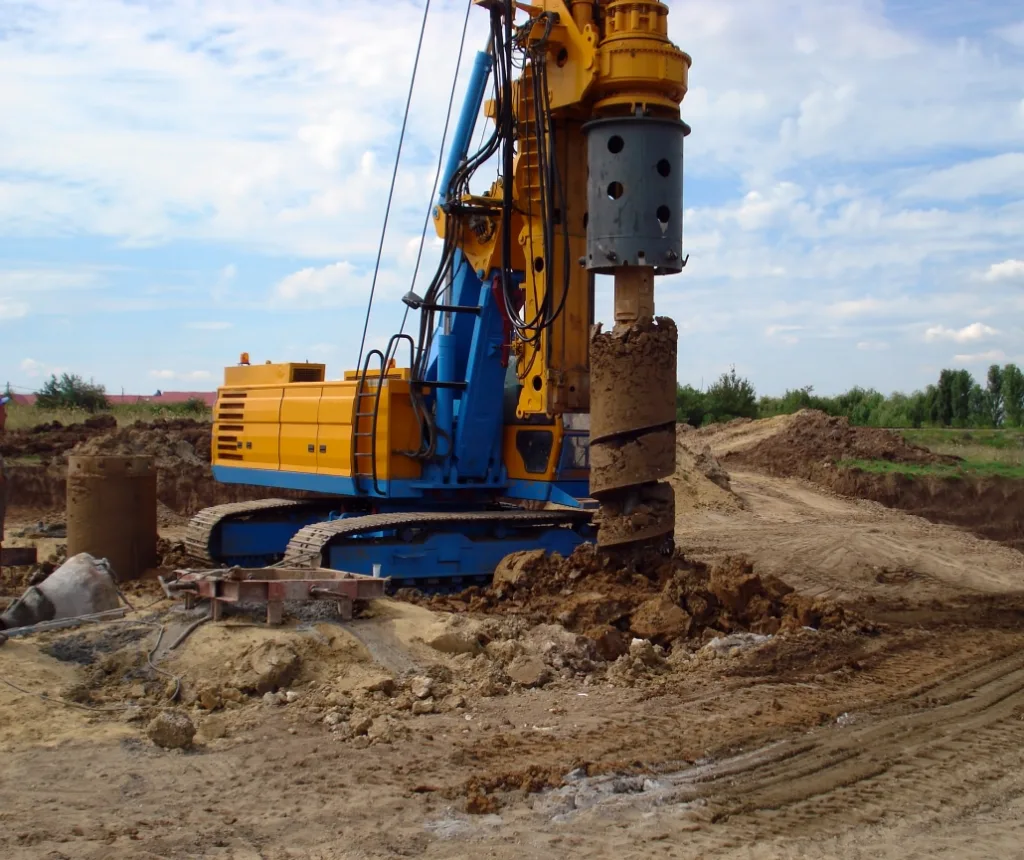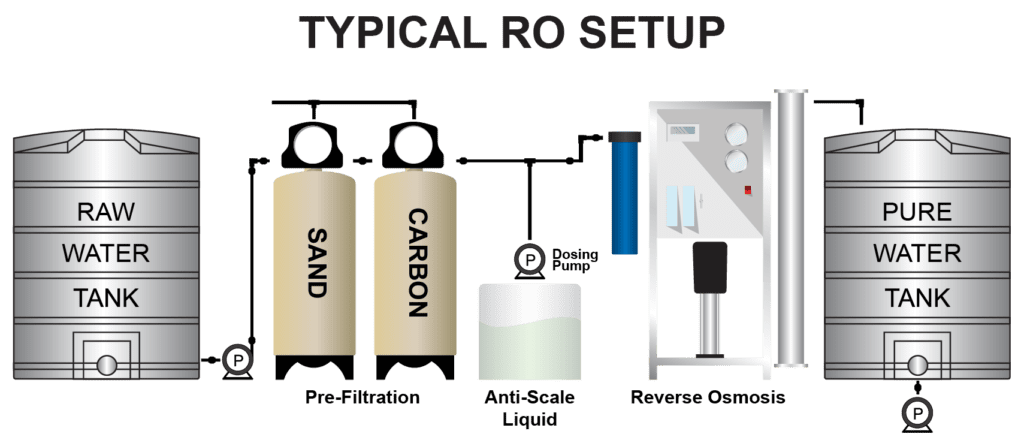Borehole Water
- Home
- Borehole Water
BOREHOLE WATER
Background
At Puritech, we take pride in providing these solutions for our customers for the past 15yrs and counting. We have solutions for all underground water, to make the water safe for drinking for all communities big and small. Apart from borehole water treatment, we also drill boreholes in and around South Africa at competitive prices.
You might have just sunk a borehole and asking yourself what do I need to do next in order to drink clean and safe water from this borehole. Well, you have just come to the right place. Basically all boreholes or underground water should have a sand/sediment filter to remove dirt particles, suspended solids and tiny debris.
In order for Puritech to provide you with the most effective solution for your borehole water, it will be imperative to get your water sample tested. We need a full water quality report to establish what minerals are excessive in the water so we can recommend the right filters and chemicals for you.
What is borehole water?
Typically, a borehole used as a water well is completed by installing a vertical pipe (casing) and well screen to keep the borehole from caving. This also helps prevent surface contaminants from entering the borehole and protects any installed pump from drawing in sand and sediment. Oil and natural gas wells are completed in a similar, albeit usually more complex, manner.

Benefits of a borehole
- Having your own private water supply with full control over your water usage
- Huge cost savings. Borehole water is free of charge. This enables you to save monthly on high water bills from your local municipality
- No water cuts / disruptions or consumption penalties
- Add value to your property
- Water clean of chemicals
INVESTING IN BOREHOLEWATER
and reasons why you need to drill a borehole
Most people are looking for a much more affordable way to have water in their homes as having municipal water can be unreasonably costly.
Drilling a borehole can be costly but can offer a lifetime of cost savings. There are so many borehole drilling companies Johannesburg who offer drilling services but luckily Puritech offers affordable and competitive prices.
Drilling a borehole does not mean you will always find water. There are dry wells that have been found through borehole drilling. Sometimes when you find water, the streams can run dry. Hence one will have to find the best among all other borehole drilling companies Johannesburg.
Key elements to successfully drilling a viable borehole are as follows:
- Due diligence with the drill point surveying
– Borehole drillers make use of a number of techniques. - Accurate drill set up and drill tempo
– Simply pinpointing a potential drill site is not enough to guarantee a successful borehole. It is crucial that the drill rig operator has enough experience and knowledge to set up the drill rig properly and to maintain the correct penetration rate. This will ensure a stable and straight borehole which again vastly increases the potential for a successful borehole. - Proper borehole construction
– It is key that a drilling supervisor or consultant be onsite to ensure that the borehole construction is done safely and correctly. Casing installation, perforation and depth can all influence the success rate.
An Investment Worthwhile
Apart from borehole water treatment, there are many reasons why residential homeowners choose to invest in borehole drilling on their properties. When you own your water supply, you own your destiny. With a borehole you say goodbye to frustrating water cuts, municipal disruptions and water rationing during times of drought!
With a borehole on your property, you will save money every day. Water independence from municipal sources is another big reason behind boreholes’ popularity in South Africa.
In most areas throughout South Africa, there are no local water authority restrictions on the use of groundwater for domestic use. Some areas underlain by dolomitic lithologies however, do feature restrictions – Irene for example
When you invest in a borehole for your property, it also allows you to enjoy cultivating a beautiful garden for less, and also keep the garden beautifully green and luscious in a Drought.
Boreholes also offer greater water security and add tangible value to your property.
Borehole Water Testing
It is very crucial that you get your borehole water tested. The reason for this is to check if the water is fit for human consumption.
Most boreholes contain a lot of contaminants in their water and knowing the levels/number of the contaminants is very important. This will help you and us determine the type of solution required to produce the best quality water.
Natural water contains heavy metals that can be harmful to your health or might cause health problems in the future unless treated.
Most water tests report the following heavy metals in water and the type of treatment required;

In general, a water with a pH < 7 is considered acidic and with a pH > 7 is considered basic. The normal range for pH in surface water systems is 6.5 to 8.5 and for groundwater systems 6 to 8.5. Alkalinity is a measure of the capacity of the water to resists a change in pH that would tend to make the water more acidic. The measurement of alkalinity and pH is needed to determine the corrosivity of the water.
Total Dissolved Solids (TDS)
A total dissolved solid (TDS) is a measure of the combined total of organic and inorganic substances contained in a liquid. This includes anything present in water other than the pure H20 molecules. These solids are primarily minerals, salts and organic matter that can be a general indicator of water quality. High TDS generally indicate hard water, which can cause scale build up in pipes and appliances. Scale buildup reduces performance and adds system maintenance costs.
The use of Reverse Osmosis is a proven solution to reducing the level of dissolved solids in borehole water.
Total Hardness In Water
When it comes to borehole water treatment, hard water interferes with almost every cleaning task from laundering and dishwashing to bathing and personal grooming. Clothes laundered in hard water may look dingy and feel harsh and scratchy. Dishes and glasses may be spotted when dry. Hard water may cause a film on glass shower doors, shower walls, bathtubs, sinks, faucets, etc. Hair washed in hard water may feel sticky and look dull. Deposits may reduce water flow in pipes.
Dealing with hard water problems in the home can be a nuisance. The amount of hard minerals in water affects the amount of soap and detergent necessary for cleaning. Soap used in hard water combines with the minerals to form sticky soap curd. Some synthetic detergents are less effective in hard water because the active ingredient is partially inactivated by hardness, even though it stays dissolved. Bathing with soap in hard water leaves a film of sticky soap curd on the skin. The film may prevent the removal of soil and bacteria. Soap curd interferes with the return of skin to its normal, slightly acidic condition, and may lead to irritation. Soap curd on hair may make it dull, lifeless, and difficult to manage.
Effects of Hard Water
Damaged Appliances
Precipitation of minerals that form rock-hard deposits also known as limescale causes scaling on pipes, drains, and faucets.
Hard water deposits can be found in plumbing, water heaters, dishwashers, and washing machines, wasting energy and causing early failure of all water-using appliances.
Additional Expenses
Mineral deposits that collect on the inside of pipes cause plumbing to work harder which can lead to higher water bills.
Clothes that are frequently washed in hard water will fade faster than clothes washed in softer water. Many notice a lack of suds in their soap, requiring more detergent or soap for laundry, dishwashers, shampooing, and bathing.
Scale Buildup
Unsightly white buildup around your faucets and fixtures is hard to remove, and you will start to notice discoloration in the bathtubs, showers, and toilets.
The combination of soap and hard water forms “soap scum” that can’t be rinsed off, leaving unsightly spots and deposits on bathtubs, dishes, glassware, and shower doors.
Dry Skin & Hair
Body soap and hard water together cause the formation of scum known as “curds.” This occurs when calcium and magnesium form insoluble salts, remaining on the skin even after thoroughly rinsing.
Frequent showering in hard water can cause dryness, rashes, and irritation of the skin which can lead to premature aging. Hard water has a similar effect on your hair, causing rough and tangled hair.
How to Treat Hard Water
If your home has hard water, the easiest hard water treatment solution is a water softener. With a water softener system, hard water passes through the filter which contains negatively charged resin beads that attract and filter out high levels of minerals from the water, specifically calcium and magnesium. Then, the newly softened water goes through the filter and into your home.
Borehole Water Treatment
As portable water continues to be scarce and more expensive globally due to droughts and global warming, underground water, and borehole sinking have come out to be the best alternative. So to address small community drinking water needs where available water quality does not comply with current World Health Organisation (WHO) recommendations.
There’s a need to treat borehole water by removing unhealthy contaminants such as coliform, ecoli, fluoride, iron, arsenic, salt, hardness, and color from water.
Below Is A Sketch Of A Basic Borehole Water Treatment Plant Flow Chart





